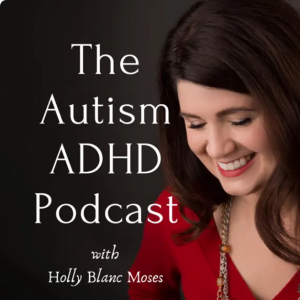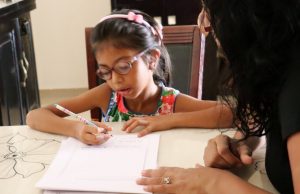What Is Sensory Processing Disorder?
 It’s not uncommon to feel overwhelmed by competing conversations or flashing lights, but for children and adults with Sensory Processing Disorder, these sensations disrupt and overwhelm everyday life. Read more ›
It’s not uncommon to feel overwhelmed by competing conversations or flashing lights, but for children and adults with Sensory Processing Disorder, these sensations disrupt and overwhelm everyday life. Read more ›
 It’s not uncommon to feel overwhelmed by competing conversations or flashing lights, but for children and adults with Sensory Processing Disorder, these sensations disrupt and overwhelm everyday life. Read more ›
It’s not uncommon to feel overwhelmed by competing conversations or flashing lights, but for children and adults with Sensory Processing Disorder, these sensations disrupt and overwhelm everyday life. Read more ›
 Sensory integration is an essential part of your development — it helps define everything from the way you see and hear things in the world, to the way that your body exists in space and more. Yet, research suggests that anywhere from 5% to 16.5% of people experience sensory processing challenges, especially in those with conditions like autism spectrum disorder. Read more ›
Sensory integration is an essential part of your development — it helps define everything from the way you see and hear things in the world, to the way that your body exists in space and more. Yet, research suggests that anywhere from 5% to 16.5% of people experience sensory processing challenges, especially in those with conditions like autism spectrum disorder. Read more ›
 Some children are highly gifted in areas such as math, writing or music. Others have learning challenges like ADHD, dyslexia or dyscalculia, autism or sensory processing issues. But there are also kids who fit into both categories. They’re called “twice-exceptional,” or 2e, which means that they have exceptional ability and disability. Read more ›
Some children are highly gifted in areas such as math, writing or music. Others have learning challenges like ADHD, dyslexia or dyscalculia, autism or sensory processing issues. But there are also kids who fit into both categories. They’re called “twice-exceptional,” or 2e, which means that they have exceptional ability and disability. Read more ›
 Each year, tens of thousands of students diagnosed with autism spectrum disorders graduate from high school, many with aspirations to attend college. Yet only about 100 colleges, most of them four-year institutions, have standalone programs for those students, according to an analysis by members of the College Autism Network. Read more ›
Each year, tens of thousands of students diagnosed with autism spectrum disorders graduate from high school, many with aspirations to attend college. Yet only about 100 colleges, most of them four-year institutions, have standalone programs for those students, according to an analysis by members of the College Autism Network. Read more ›
 Children with ADHD and Autism often require a different approach. In the Autism/ADHD podcast series, behavior expert Holly Blanc Moses shares her strategies to help children diagnosed with autism and ADHD effectively improve their behavior, emotional health, social skills, and academic performance. Read more ›
Children with ADHD and Autism often require a different approach. In the Autism/ADHD podcast series, behavior expert Holly Blanc Moses shares her strategies to help children diagnosed with autism and ADHD effectively improve their behavior, emotional health, social skills, and academic performance. Read more ›
 The percussive skill needed to bang out rhythms on a drum may help improve socializing, inhibition control and focus among teens with autism, new research suggests. Read more ›
The percussive skill needed to bang out rhythms on a drum may help improve socializing, inhibition control and focus among teens with autism, new research suggests. Read more ›
 In the early phase of the COVID-19 pandemic, Stanford Medicine researchers had to pause a study of autism treatment in preschoolers. The participants, young children with speech delays, had been coming to Stanford 12 hours a week for a therapy called pivotal response treatment, which uses autistic children’s interests to motivate them to talk. Read more ›
In the early phase of the COVID-19 pandemic, Stanford Medicine researchers had to pause a study of autism treatment in preschoolers. The participants, young children with speech delays, had been coming to Stanford 12 hours a week for a therapy called pivotal response treatment, which uses autistic children’s interests to motivate them to talk. Read more ›

 The CDC and National Health Statistics Reports estimate that there is a 1-2% chance of a child being diagnosed with an autism spectrum disorder (ASD), and the rates for boys are higher than that for girls. So, if your child has just been diagnosed with autism, you are not alone. Read more ›
The CDC and National Health Statistics Reports estimate that there is a 1-2% chance of a child being diagnosed with an autism spectrum disorder (ASD), and the rates for boys are higher than that for girls. So, if your child has just been diagnosed with autism, you are not alone. Read more ›
 Survey data from Autism Parenting Magazine reveals almost 6% of children with autism spectrum disorder (ASD) have some form of gender dysphoria. Read more ›
Survey data from Autism Parenting Magazine reveals almost 6% of children with autism spectrum disorder (ASD) have some form of gender dysphoria. Read more ›
 A study on autism’s gender differences, published in the journal Molecular Autism, focused on the language that autistic girls and boys used during semi-structured interviews by exploring social word use. When comparing autistic girls and boys between the ages of 6 and 15 with similar IQs and levels of autism, girls were shown to use far more social words—that is, words that make reference to other people, including family and friends—than their male counterparts. Read more ›
A study on autism’s gender differences, published in the journal Molecular Autism, focused on the language that autistic girls and boys used during semi-structured interviews by exploring social word use. When comparing autistic girls and boys between the ages of 6 and 15 with similar IQs and levels of autism, girls were shown to use far more social words—that is, words that make reference to other people, including family and friends—than their male counterparts. Read more ›